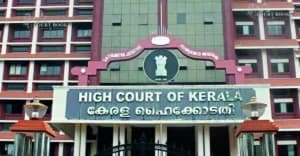In a significant development, the Madras High Court has stayed the recent legislative amendments introduced by the Tamil Nadu government which removed the Governor’s power to appoint Vice Chancellors in state-run universities. The interim order was passed on Wednesday by a vacation bench comprising Justice G R Swaminathan and Justice V Lakshminarayan.
The amendments were introduced following a recent Supreme Court ruling that clarified the powers of Governors. However, the court took up the matter based on a plea filed by advocate K Venkatachalapathy, who challenged the constitutional validity of the amendments.
"The High Court bench passed the interim stay despite repeated objections from the State's counsel, who informed the court about a pending petition in the Supreme Court to transfer the case to be heard along with similar matters already before the apex court."
Senior Advocate Dama Seshadri Naidu, appearing for the petitioner, argued that the Tamil Nadu government's move to amend the law was in direct conflict with the University Grants Commission (UGC) Regulations. According to the UGC norms, Vice Chancellors must be appointed by the Chancellor based on the recommendations of a Search Committee. The State’s amendments, however, vested this power solely with the government, thereby sidelining the Chancellor's role.
Naidu further contended that since education is part of the Concurrent List under the Constitution, in the event of a conflict between central and state laws, the central law must prevail. He stated that the UGC Regulations, being part of central legislation, override any contrary provisions introduced by the state. Therefore, he argued, the state’s amendments were unconstitutional and legally unsustainable.
Senior Advocate P Wilson, representing the Tamil Nadu Higher Education Department, opposed the plea and insisted there was no urgency in the matter to justify an interim stay. He informed the court that a transfer petition had already been filed before the Supreme Court and was expected to be taken up within a few days. He suggested that the High Court defer the matter until a decision was made on the transfer petition.
"The court, however, did not accept this request and allowed Naidu to continue presenting his arguments."
Wilson also raised concerns over the authenticity of a Gazette notification submitted by the petitioner. He claimed that the document was not genuine and called it a forged version of the State’s gazette. He urged the court to take note of this issue and requested a CB-CID inquiry to determine how such a document came into the petitioner’s possession.
"The gazette attached is a forged one. It's not our gazette. A CB-CID inquiry has to be ordered. Lordships should not act on it. How did this gazette come into his hand? We need to see it. Not just the petitioner but the advocate also would be answerable," argued Wilson.
Read Also:-Madras High Court Imposes Interim Stay on NEET UG 2025 Results Over Re-Examination Plea
In addition, the Advocate General submitted that the matter raised constitutional questions that required a proper opportunity for the State to file its counter. He reminded the court of a Supreme Court precedent which advised against staying legislation unless it was clearly illegal on its face. He requested the court to postpone the hearing until after the court’s vacation, allowing time to submit the State’s formal response.
Despite these requests, the court proceeded with the hearing and granted an interim stay on the implementation of the amendments.
Case Title:
K Venkatachalapathy @ Kutty v The State of Tamil Nadu















